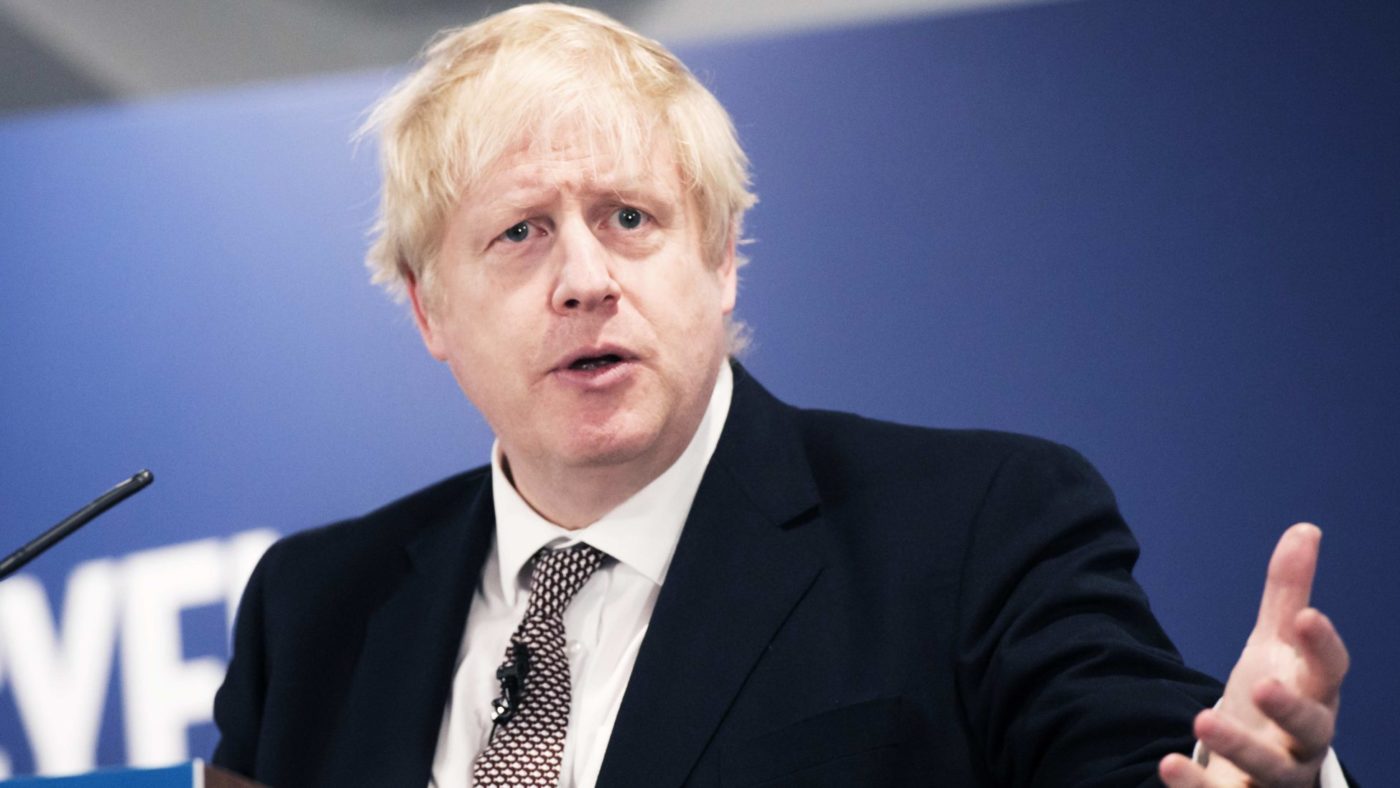Neither the Brexit-bonger-in-chief Mark Francois, the BBC’s increasingly ‘end of the pier’ Question Time, nor the circular firing squad formerly known as the Labour Party appears to have received the memo. Yet the unnerving reality for those whose old hysterical habits die hard is that politics in our new decade has quietly turned a rather boring corner.
Indeed, we appear somehow to have acquired a majority government more concerned with the day-to-day business of actually governing. And for Boris Johnson it all appears to be going fairly well.
Take last week as an indicative example. The Prime Minister kicked it off by shepherding through a deal to reopen devolved government in Northern Ireland after three years of deadlock. He followed this up with a call for a ‘Trump Deal’ on Iran, thus carving out an unexpectedly credible version of Britain’s traditional foreign policy role as a bridge between Europe and the US. Then came a quick and unfussy rescue deal for ailing regional airline, Flybe. And all this before bedtime on Tuesday!
To be sure, this rapid burst of activity did leave him a bit too free to indulge Francois’s culture war ephemera later in the week.
Not only that, he also managed to commit a needless if typical diplomatic error when being a little too honest about the chances of extraditing the alleged American killer of the teenage motorcyclist Harry Dunn. Nevertheless, the Prime Minister is surely able to sit back and reflect upon what is so far a substantial and broadly competent return to business.
The Stormont deal arrests a running sore in both Brexit and union politics, allowing him to focus his attention towards tougher battles ahead in Brussels and Edinburgh. Meanwhile, his foreign policy gambit, whilst naturally and unavoidably a hostage to Trumpian fortune, is more deft than anything he attempted, let alone achieved, during his time as Foreign Secretary.
It is the deal for Flybe however, that should make his domestic opponents sit up and take notice. Not just the Labour Party either – I have written before about how Johnson’s fiercest intellectual resistance may come from a restless caucus of free marketeer MPs wary about such nakedly statist inclinations (though over time one suspects the Government’s most visible adversaries will emerge from the aforementioned European and Scottish capitals). To those economic liberals, Flybe’s rescue carries – and not for the first time – the stark message that, on regional inequality especially, this Tory government will not be content merely to let the market distribute its rewards.
No doubt many may see here the influence of the Prime Minister’s ever-mysterious advisor, Dominic Cummings. Yet in truth this would continue a Westminster-wide trend of woefully underestimating Boris Johnson’s agency over himself. Indeed, both the Prime Minister’s more libertarian supporters and the Labour Party still wildly miscalculate the levels of ideological baggage Boris Johnson brings to his premiership.
For the former, his ascension to power and early Cabinet appointments let to overexcited talk of “libertarian comeback kids” driving through a coherent free market agenda. For the latter, well, where to begin. Yes, of course the Prime Minister’s record of making crass and often racist jokes about minorities from the bully pulpit is not exactly endearing for those, like me, who lean leftwards.
Yet some time around the absurdly overwrought Supreme Court prorogation ruling, liberal Britain seems to have also decided that Johnson is not just offensive, but actually a tyrannical anti-democratic demagogue in waiting. This, it hardly needs saying, is utter political drivel. But it is utter political drivel that currently finds favour with the full spectrum of Labour’s leadership hopefuls.
Perhaps, one imagines, they view this diagnosis as harmless, congregation-pleasing knockabout. Fine. But it also ignores the true nature of Johnson’s political ambitions. For what the Prime Minister is doing – from his more conciliatory approach to Brexit, to extra NHS spending, regional rebalancing and industrial activism to “enforceable limits” on CO2 emissions, populist red meat on law and order and, yes, perhaps even the more sober and business-like approach to foreign relations – is robustly pitching for the vacated centre ground.
The shared lesson here is that those who seek to influence or oppose him must start dealing with the Boris Johnson who is Prime Minister, not the Boris Johnson of their fevered imaginations. His permanent character as a politician is that he has no permanent character. There are no ideologically fixed principles – one minute he is a metropole-friendly liberal, the next a rabble-rousing populist.
The signs for those who are paying attention are that he has already begun his next shape-shifting regeneration.
Click here to subscribe to our daily briefing – the best pieces from CapX and across the web.
CapX depends on the generosity of its readers. If you value what we do, please consider making a donation.


